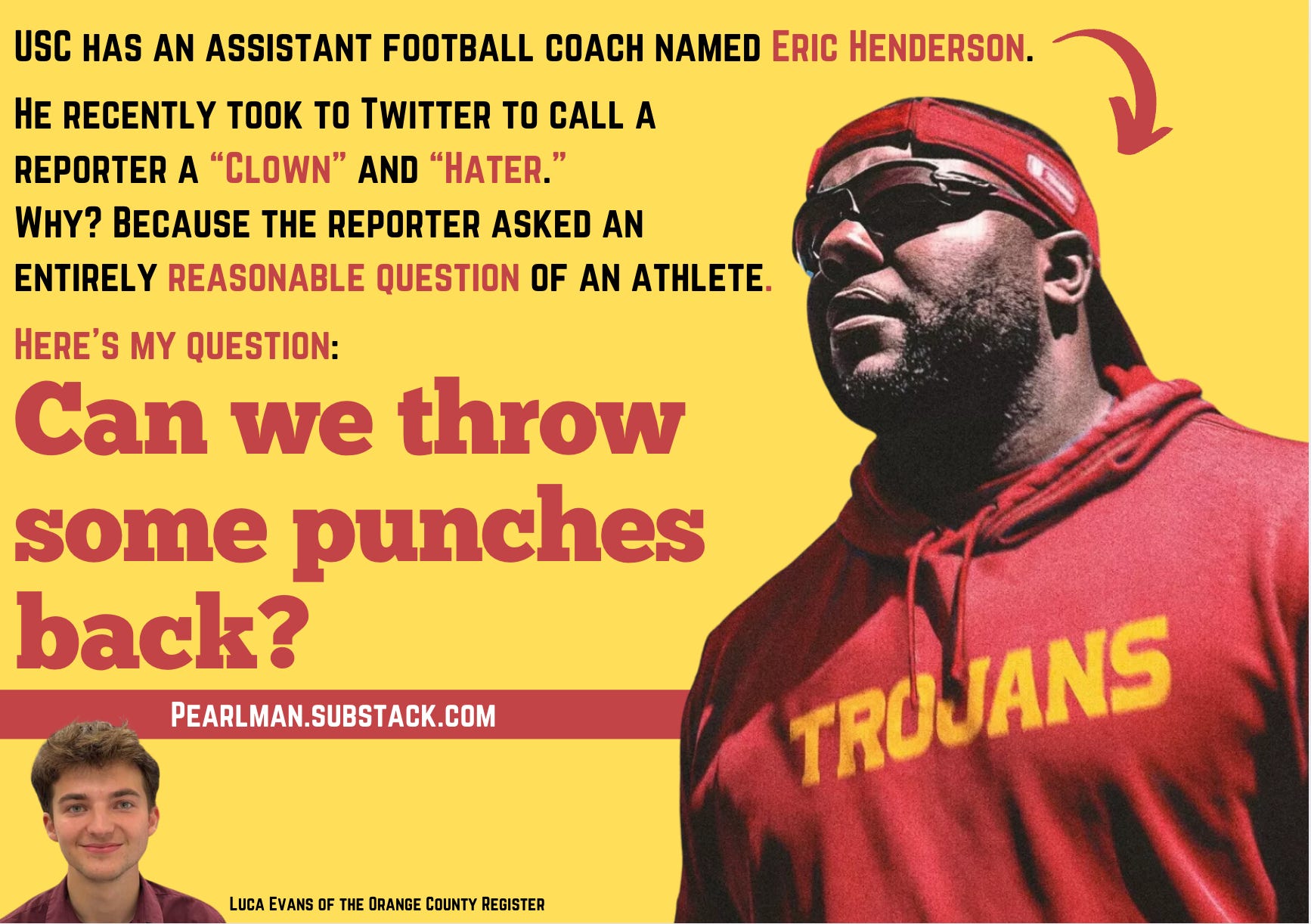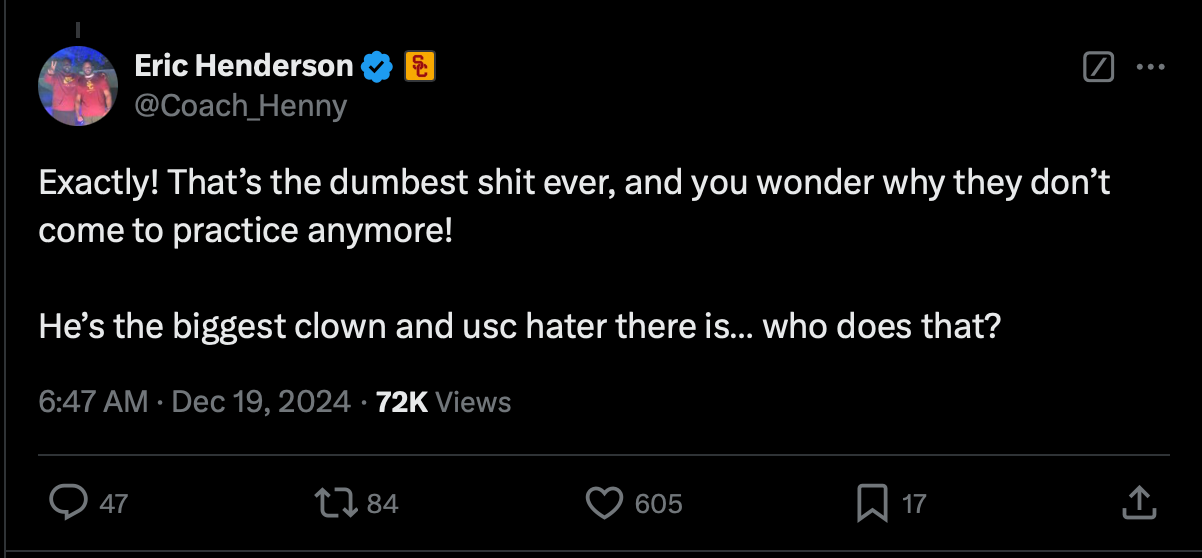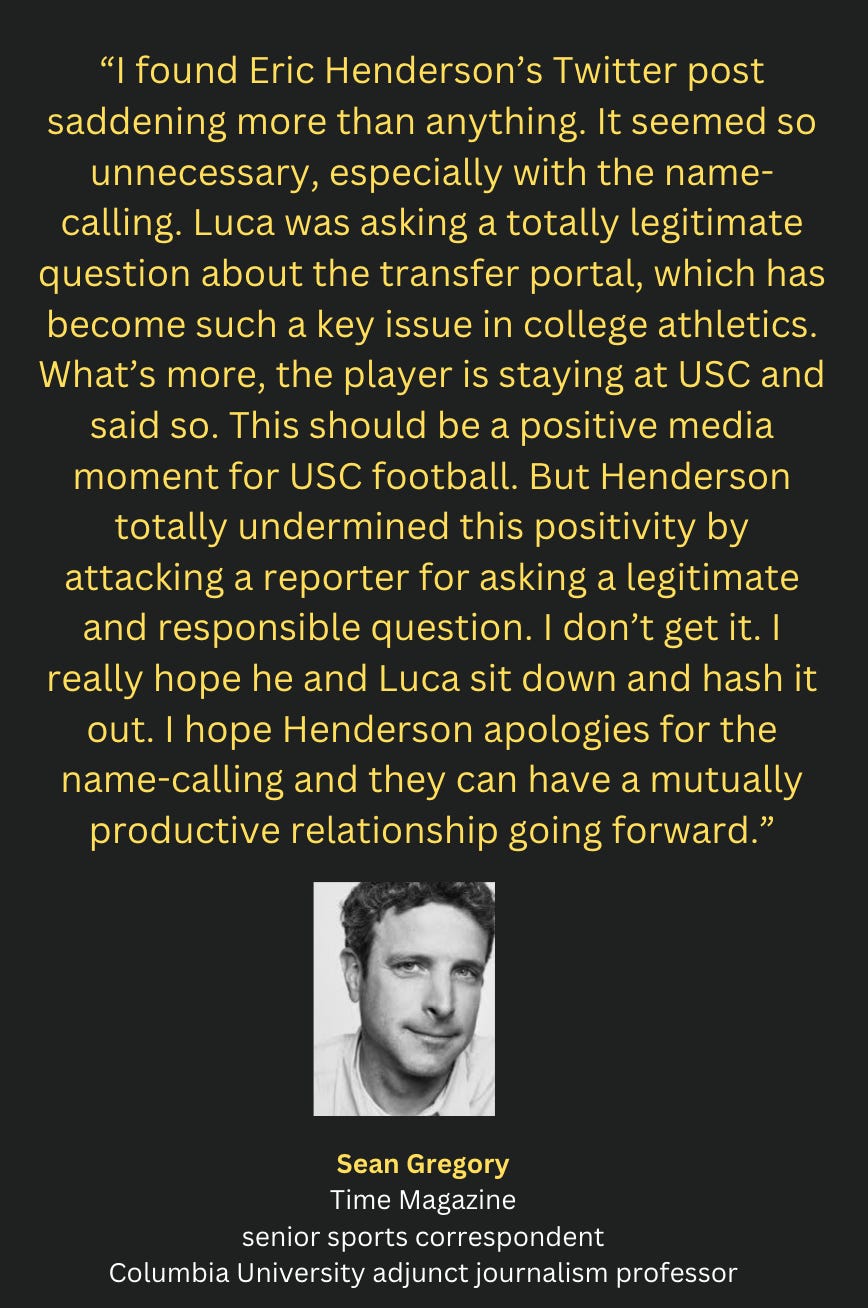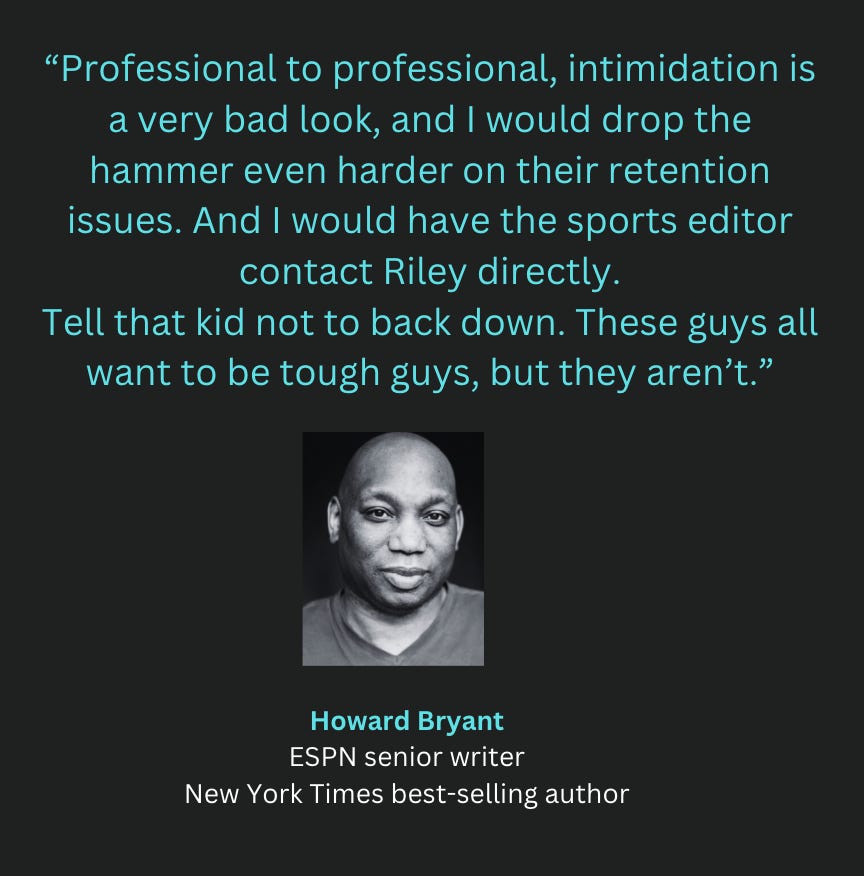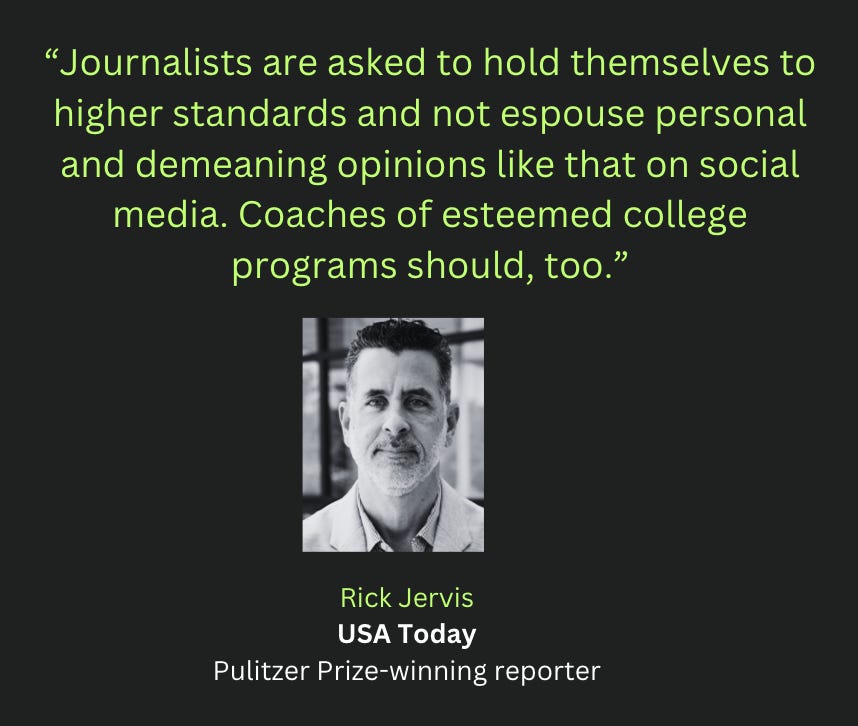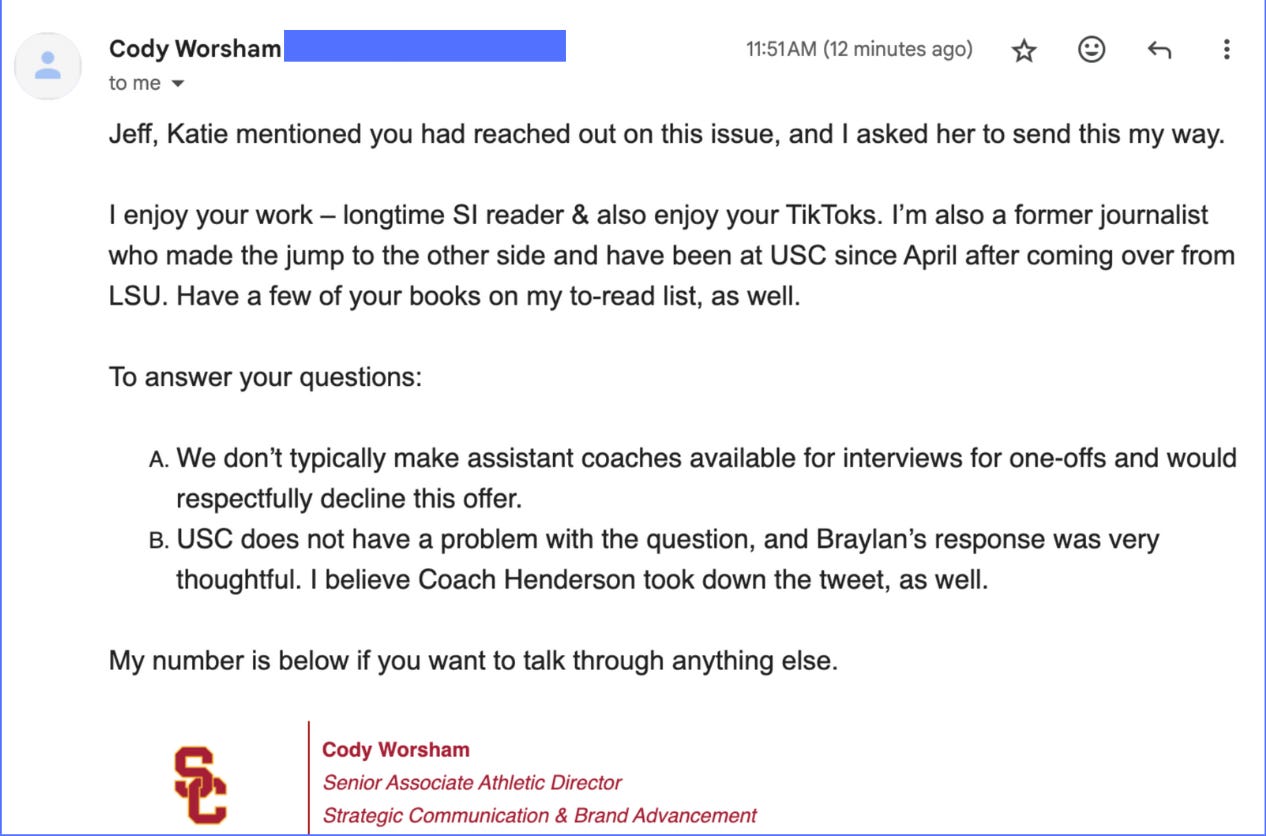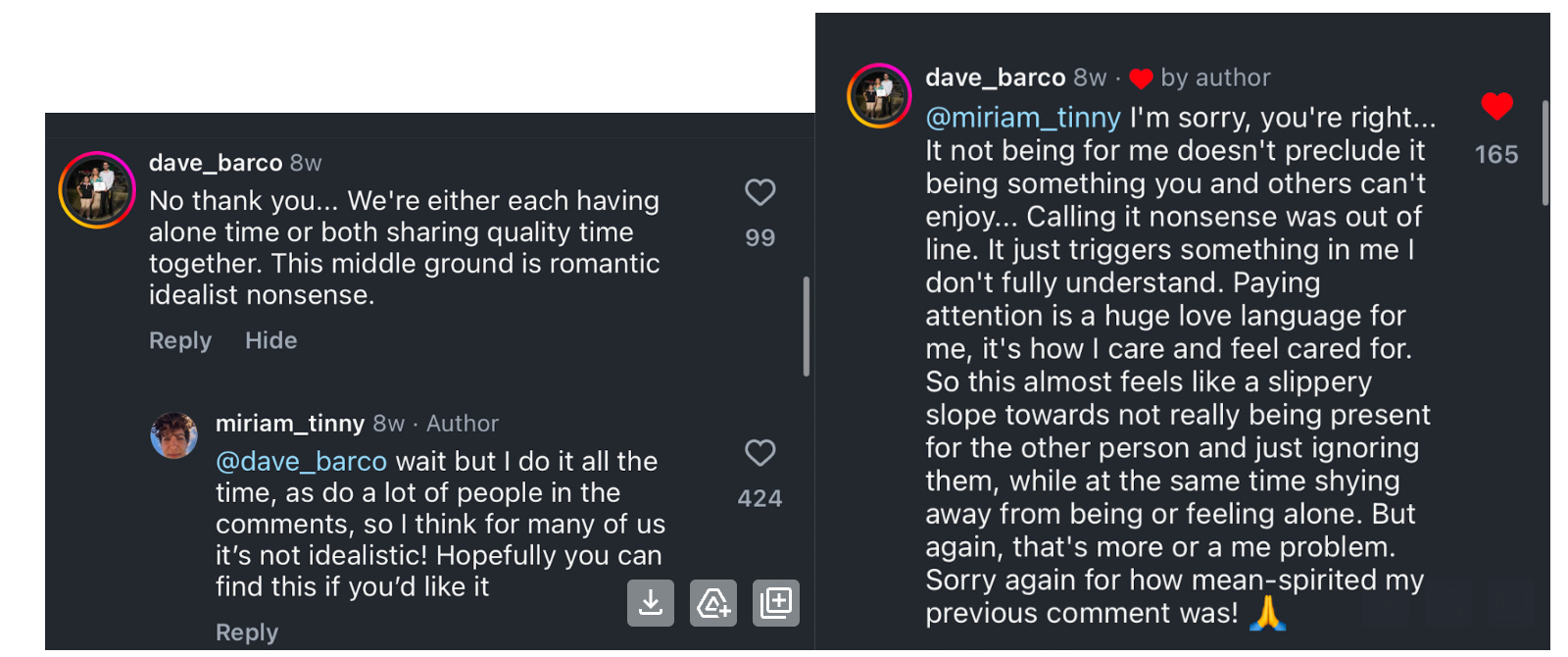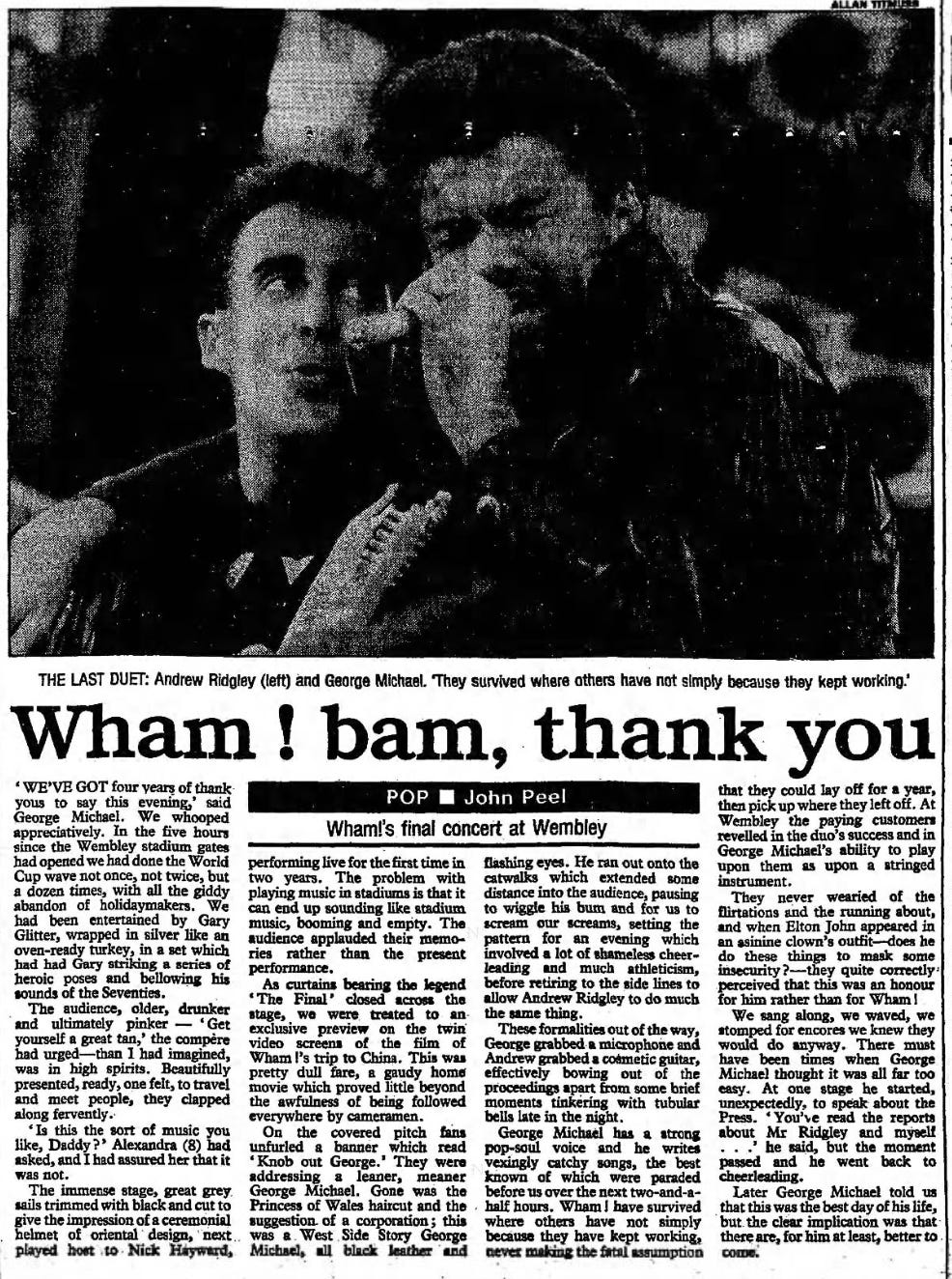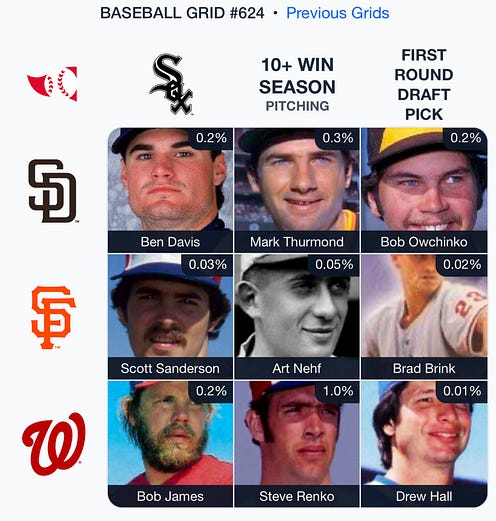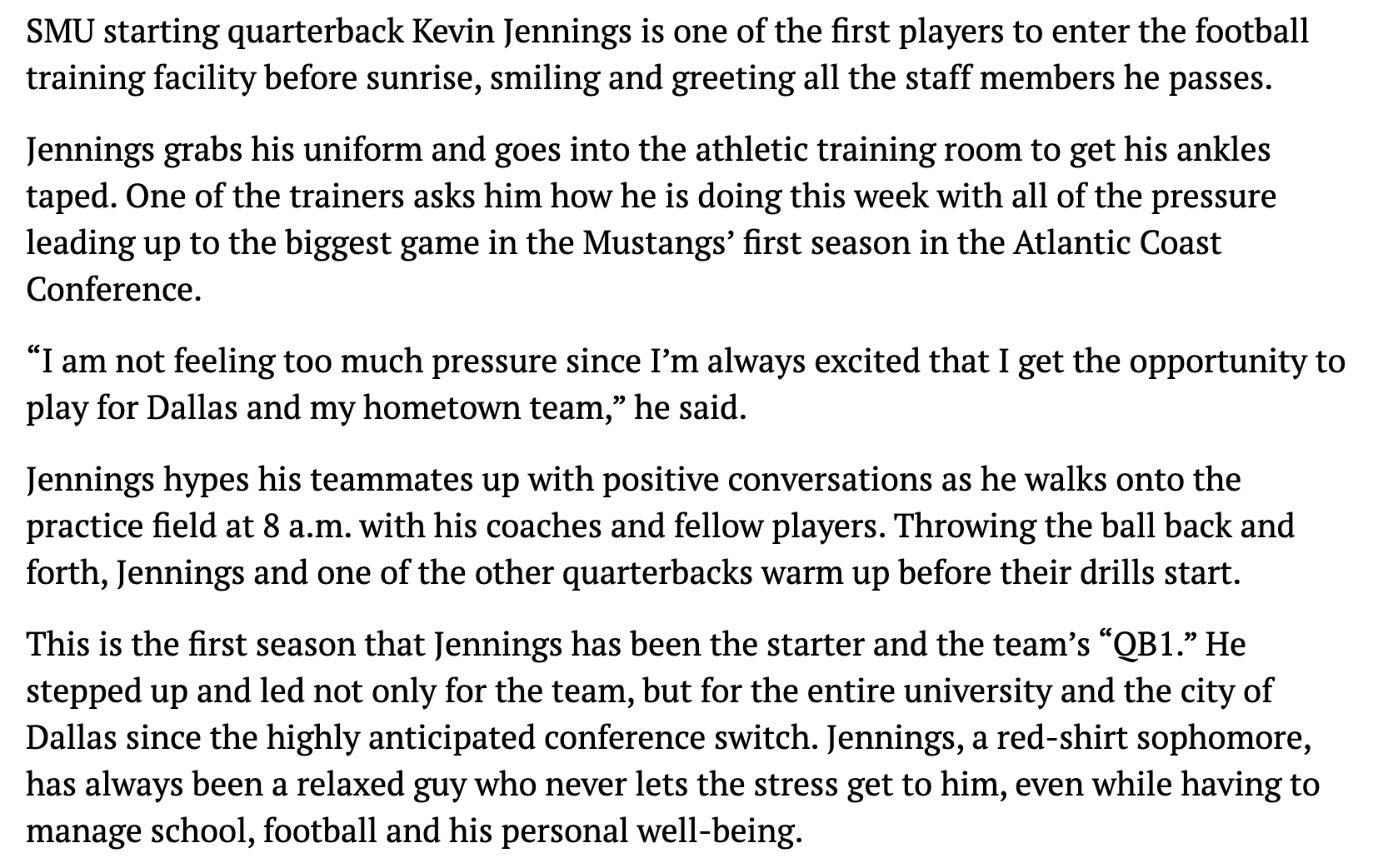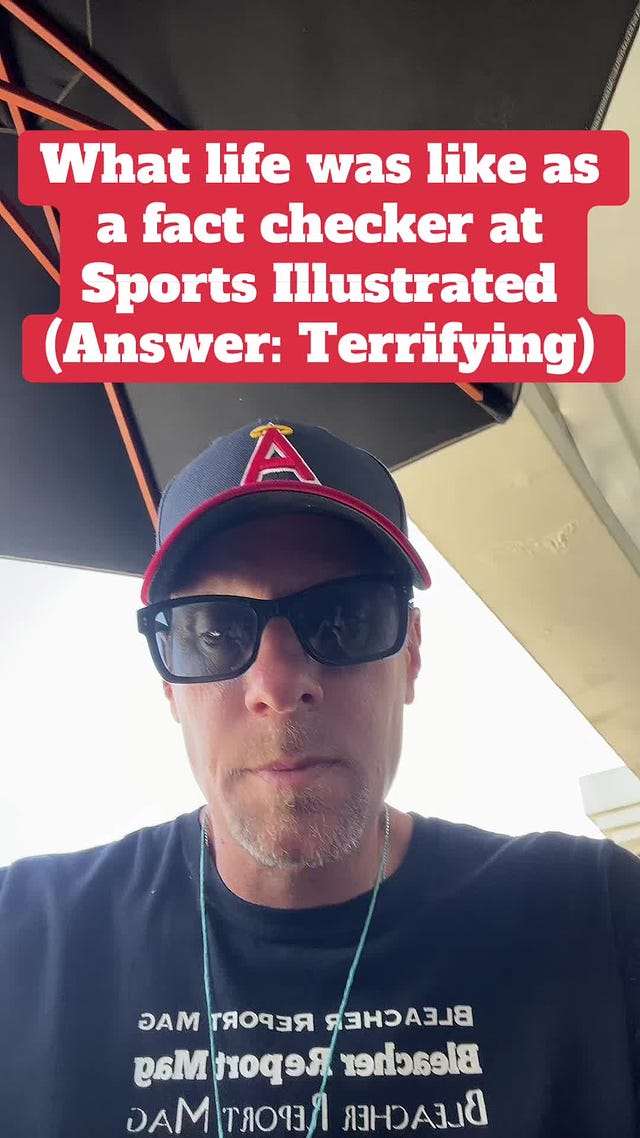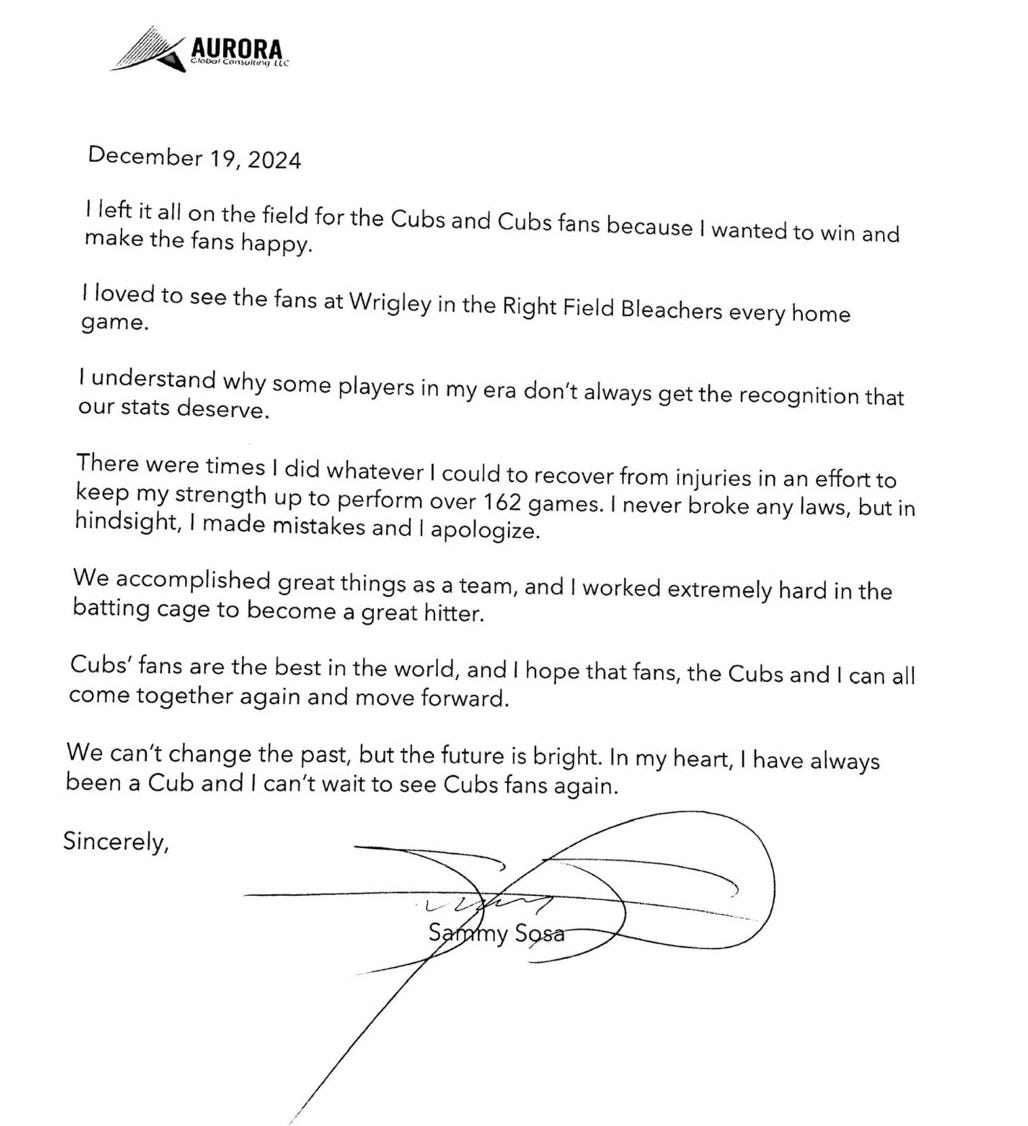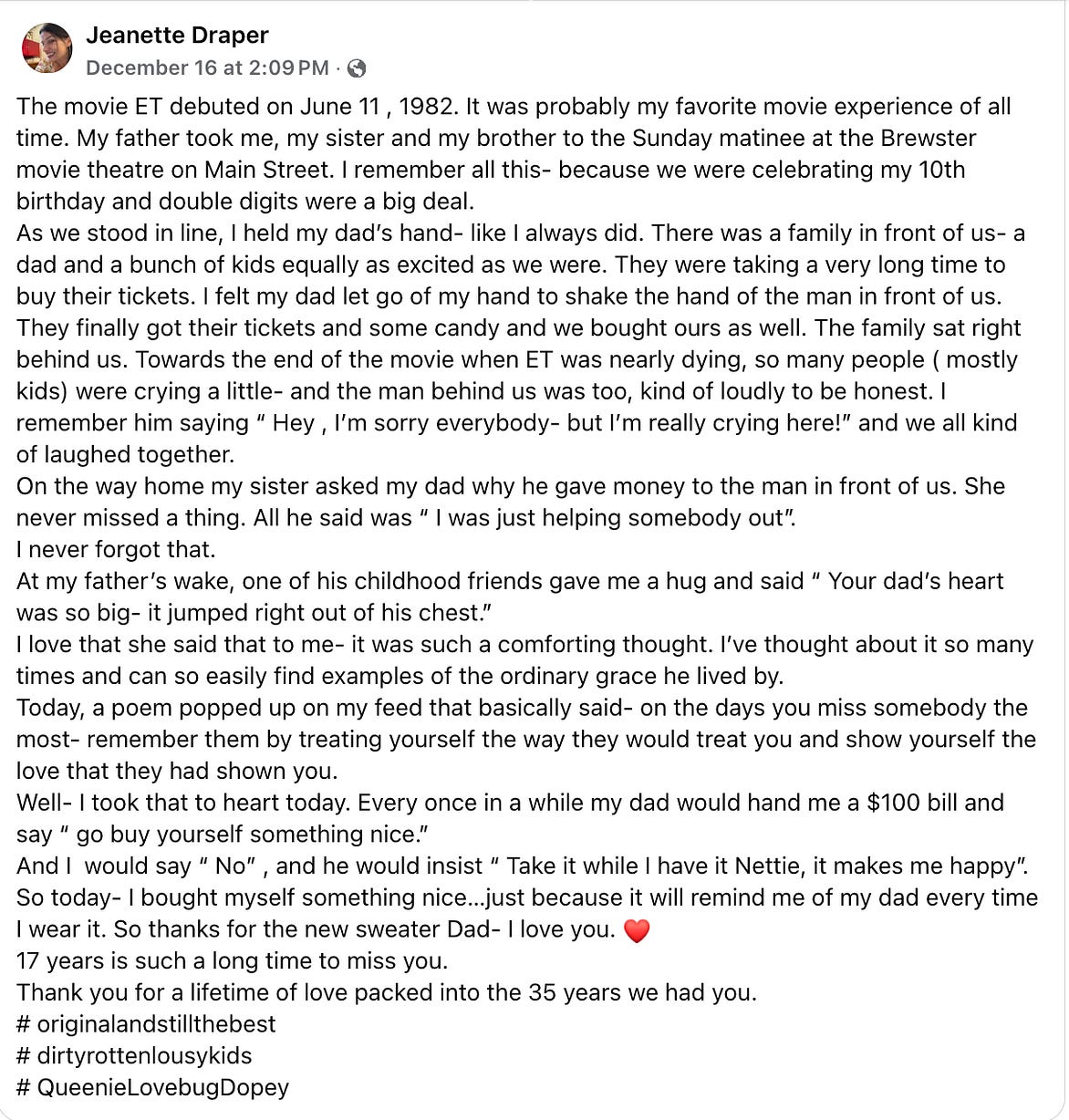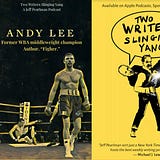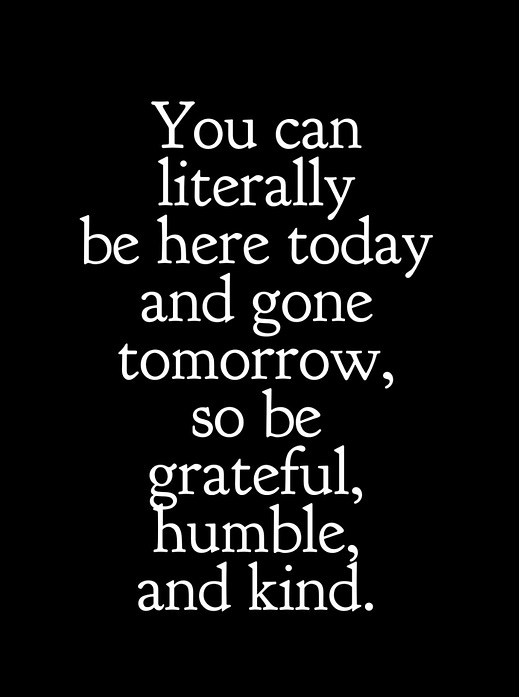The Yang Slinger: Vol. XCVIIIA college football coach took to Twitter to mock and berate a reporter who had the audacity to ask a fair question. Can the journalist fight back?We live in strange times. I recognize that’s a sentiment easily applicable to pretty much any period in America’s long and bizarre history, but—in regards to media—I’m not sure there’s ever been a more befuddling, more dizzying, more turbulent period than the one we occupy. And I say this because of … everything. Layoffs. Social media. Politics. Corporatization. The death of print. The rise of miniature screens. Trump. Musk. Bravo Andy. The Kardashians. Chicago Cubs righty Porter Hodge.¹ Stephen A. Mad Dog. Hannity. Maddow. The Housewives. TikTok. Michael J. Lewis’ blog. On and on and on and on and on. It’s beyond unsettling, and it sorta drives me to drink. Unfortunately, what has accompanied this weird time of journalistic dissettlement is a willingness of far too many members of society to punch us (collectively) in the teeth and scream, “Fuck the media!” That’s largely a result of changed, warped expectations. Not all that long ago, “the media” was, oh, your local newspapers and TV stations, national magazines, the New York Times, Washington Post, USA Today and Wall Street Journal and the evening news with either Dan Rather, Peter Jennings or Tom Brokaw. Truly, that was it—and any other noise makers were, well, noise makers. Certainly, back in the 1980s no one was buying a poodle sweater on QVC, receiving it in the mail and screaming, “I hate the media!” Wait. I digress. I bring this up because of something that transpired earlier in the week. On Wednesday evening, at precisely 6:09, Luca Evans—USC beat writer for the Orange County Register and (in full disclosure) my former student at Chapman University—posted this on Twitter. If you choose not to visit the site (or if it’s yet again glitching out, as it tends to do under Darth Maul’s leadership), the clip features Luca asking Braylan Shelby, a sophomore defensive end for the Trojans, whether he plans on entering the transfer portal. The exchange goes thusly … EVANS: You’re obviously here. That would signal you’re gonna stay at USC and not hit the portal. If so, what made you have that decision to decide to remain at SC? SHELBY: I’m faithful. SC brought me in, they brought me home. I trust the process. I trust Linc [Head coach Lincoln Riley]. And, um, I mean, just staying here, sticking it out. Um, really just loving it here. And I appreciate everybody that’s been here for me. All the people that mentor me here. And, I mean, just staying here. EVANS: So no plans to hit the portal? SHELBY: No. With USC nearing completion of yet another dog excrement season (the team is 6-6 and preparing to play Alvernia University² in the Hawk tuah Bowl), and with a whopping 19 players already having left for the transfer portal (including a pair of five-star receivers, Zachariah Branch and Duce Robinson), Luca’s inquiry wasn’t merely wise—it was necessary. “The question the reporter asked was valid and smart,” said B.J. Schecter, executive director of Seton Hall’s Center for Sports Media. B.J. is right. These are (factually) the times we live in. This is the sports universe we occupy. Players come. Players go. A commit in 2024 is a departure in 2025. Recruits post on IG about joining “The Trojan Fam”—then some bags of loot arrive and they leap to the “Cougar Fam.” There are, quite literally, no guarantees when it comes to Division I football, and any beat writer worth their salt realizes an enormous part of the job involves determining who is choosing to stay, who is choosing to leave—and what impact that has on the program going forward. Fuck, it’s not even debatable. “Luca’s question is more than valid and, given the current atmosphere in college football with players opting out of bowl games and hitting the transfer portal the second it opens, more than necessary,” said Paul Gutierrez, ESPN’s Las Vegas Raiders beat writer. “It’s what college football has done to itself with the timing of the portal opening—taking a roll call of players to gauge their plans is the norm now.” Added Ian O’Connor, the longtime journalist and author: “I’m guessing Luca realized that neglecting to ask a prominent athlete at a storied football factory about portal possibilities is tantamount to committing journalistic malpractice. So what if the athlete had already stated a position. Just like college coaches did for many decades, college athletes are breaking commitments left and right, and saying one thing before doing another, to chase a better payday or a surer shot at the pros. Luca was just doing his job.” So—again. It’s not even debatable. Luca threw out a question that any good journalist would ask. And then … The Tweet was posted Thursday morning by Eric Henderson, USC’s (prepare for a lengthy job title) co-defensive coordinator/run game coordinator/defensive line coach. And, to be honest, I had to read it three or four times to believe it. Because, eh … um … hmm … What the fuck? Like, actually, what the fuck? Eric Henderson is almost 42-years old. He’s married. He graduated from Georgia Tech with a management degree, played three years with the Cincinnati Bengals, then another three years with the Las Vegas Locomotives of the American Football League. He has coached with four universities and two NFL teams. He owns a Super Bowl ring. Hell, he’s working toward a master's degree in educational psychology. The dude has been around and, one might think, knows how sports reporting goes. So how to explain the Tweet? How to explain a college coach (presumably an educator of young men) referring to a journalist as a “clown” and “hater”? How to explain him not doing so face to face (I assure you, Henderson stresses accountability to USC’s players), but in the most wussy of methods—social media post? He literally has the opportunity to see Luca Evans … every … single … day. How to explain him not understanding that reporters are paid to (wait for it) report? How to explain this shit? Well, it’s surprisingly easy. “The coach is just bullying a kid,” said Michael J. Lewis, the veteran sports writer. “That’s what football coaches do. It’s stupid.” Men like Eric Henderson tend to be cowardly creatures, and if you’ve covered sports long enough you know plenty of his ilk. They talk tough. They walk tough. They consider football to be a battlefield, and they think of themselves as leaders of men. They tend to be large and emboldened by the fame they once possessed in droves, and still possess (only in reduced droves). Being a part of a college football program is (to them) no different than being part of a gang or a Fortune 500 Company or a fraternity. There is backbone in numbers. Power in numbers. Security in numbers. Eric Henderson isn’t really Eric Henderson. No, he’s Eric Henderson of USC. Of Southern Cal. The Trojan. And, I assure you, he loves that—because they pretty much all love that. It’s the free meal at the eatery outside of campus. It’s game passes for the neighbors. It’s walking through an airport, luggage tag reading USC FOOTBALL and the small glances, glares, nods. Oh, wow—he’s part of the program. That shit is a drug. And not marijuana. Far stronger. It’s coke mixed with oxy. It overtakes you and convinces you of an Andre The Giant-sized importance in a (if we’re being 100-percent honest) Woody Woodpecker-sized importance of a career. But the thing is—it’s entirely conditional. You don’t get to enjoy the highest of highs without results. Wrapping up his first season at USC, Henderson’s defense line blows. It’s one of the worst in the Big Ten, if not all of America. It is, unambiguously, a horrific unit, meaning Henderson (the man in charge of the unit) has done a horrific job. And, as a result of this (as well as Lincoln Riley’s meh results over three seasons in Los Angeles), one might presume players (like Braylan Shelby) feel compelled to go elsewhere. Sure, in the age of NIL and unfettered transfers, it’s much about money and status. But a college program needs to give its athletes reason to stick around—and USC no longer does so. Unlike the golden periods of Ricky Bell and Marcus Allen and Pat Haden and Ronnie Lott, the luster is gone. USC feels stale and old and unmotivated. It’s the eggs in the back of your refrigerator, three weeks past expiration date. There is no longer anything special about attending USC and playing football for the Trojans. It’s just another school, in the mix with Kansas State and Marshall and Rutgers for your attention. Hence, the reporter was entirely justified in asking Shelby whether he planned on sticking around. The question is: What does Luca Evans do to respond? I reached out to many of my favorite journalists for this entry, wondering what, in 2024, a Luca Evans can do when a coach goes after him on social media. My favorite response came from J.A. Adande, the former Los Angeles Times/ESPN writer who now heads the sports journalism program at Northwestern’s Medill School of Journalism. He wrote: “I’d respond: just doing my job. And post this video …” 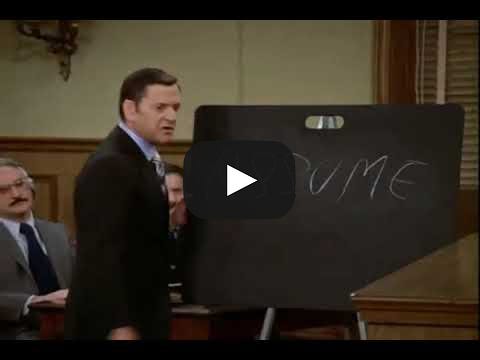 J.A. added: “I’m old enough to remember when coaches wouldn’t like how we went about reporting on the beat but would say, ‘I understand. You have a job to do.’ Now they don’t understand how or why we do what we do.” And most everyone I spoke with agreed with this take. Things used to be … different. Better. More direct. Back when I was covering Major League Baseball, athletes, managers and executives who had beef with you (gasp!) told you they had beef with you. To your face. Say what you will about John Rocker, but when he went off on me, at least he did it directly to me. That was the universal pre-Internet modus in sports. Journalists could be screamed at, berated, demeaned, mocked. Even threatened. Fuck, we in the media were 100-percent open to the flogging. We expected it. But it had to be in person. Which is why the people I spoke to all encouraged Luca to approach Henderson directly. Be the bigger person. Display integrity. Think of yourself as Eric Henderson’s size. “From what I can tell, the coach is being a bully here, and the reporter has every right to quote-tweet him and point out that he's interested in who will play for USC next season because, unlike the coach, he will still be there,” said Stephanie Apstein, the excellent Sports Illustrated writer. “But I think the better approach is to remain silent online but go to work the next day, pull the coach aside and ask, ‘Do we have a problem?’ This may have no effect whatsoever. But I suspect the reporter will feel proud of how he did the work that day.” “If there is a dialogue that needs to be happen between a reporter and a coach that feels personal, it should happen in private,” added Seth Davis, veteran basketball writer and the man behind Hoops HQ. “If Luca feels the air needs to be cleared, he should feel free to call the coach and clear the air—and not write or tweet about it. Handle it man to man. I’d bet the coach would appreciate it. If he feels Luca’s prior coverage has been unfair, Luca should be prepared to hear him out in confidence. They may not like or even respect each other in the end, but at least they will have a better understanding.” “I’d write to Coach Henny in private, pointing out you’re just doing your job, saying you were disappointed in the tone of his tweet, and making a very fact-based argument as to why this was newsworthy,” said Dave Sheinin of the Washington Post. “He may still disagree, but that’s OK, as long as it stays civil.” And, as much as I sorta hate the peace-love-and-understanding of it all, Stephanie and Seth and Dave are right. When I first digested Henderson’s Tweet, my gut desire was to fire back some snarky take on USC’s crappy defensive line. I would insult him. Mock him. Make him feel and look two inches tall. But, alas, what would that accomplish? Luca doesn’t need to battle USC football—he needs to cover USC football. And after the temporary high of a snarky Tweet fades, you’re left with bad feelings and a pissed-off coach and a more difficult job. Tyler Dunne, the terrific NFL writer and founder of Go Long, recognized familiarity in Luca’s recent plight. On multiple occasions, he’s had flare-ups with people he covered. “Over the years, I’ve had players go on Twitter to deny they said something to me,” he said. “Sammy Watkins in Buffalo (2016) comes to mind. I ended up chatting with Watkins in private about it, and he ended up being a go-to guy for me. Even connected for two features once I left the Buffalo News for Bleacher Report. “This could be a great opportunity to be the bigger person and approach Eric Henderson in private to remind him why it’s a fair question. Maybe Henderson is being too myopic and doesn’t realize why he’s being unreasonable—a relationship between the two could even come out of this.” The problem, of course, is bigger than this substack. It’s bigger than Luca Evans and Eric Henderson. It’s even bigger than a meeting between the two of them. The problem is what we have become. Thanks to the decimation of traditional media, combined with the #fakenews movement, folks in Henderson’s shoes expect outlets that write about/report upon USC football to kiss ass and toss flowers. It’s not even a conscious thing any longer. Reporters from places like the Los Angeles Times and OC Register are in the minority. They’re gnats buzzing around a practice field; irksome and intrusive. Are they even necessary? Do we actually need to engage with them? To many powerful people in college sports, the answer is, well, no. We don’t. Programs seek to control the narrative however they see fit. Why, guys like Henderson (kind of understandably) ask, should I tell them something when they’re just gonna criticize me? Why confide in them when that dude over there—the one in the USC T-shirt—will give me love on his socials? This is largely due to the rise of fan sites and fan accounts and Twitter feeds that defend institutions with uncommon/illogical vigor. It’s also due (if we’re being honest) to Donald Trump and Co. convincing millions of people that anything unfavorable has to be fake/fraud/nonsense. “The bigger picture … is the ongoing war against the media,” said Steve Buckley of The Athletic. “Simply put, the coach who made those comments feels empowered to do so.” “It comes down to a couple things: there’s this huge blurry line between team media and independent journalists (because they’re in the same places, doing very similar jobs) these days and some of the public doesn’t seem to care about the difference in how they function and what their role is,” said Ted Spiker, chair of the University of Florida’s journalism department. “Fan bases can think any question from independent journalists means they’re ‘not supporting the team.’ That’s not their job obviously but some fans think that it should be. And coaches, too, sometimes. Also reporters are easy targets—blame the media rather than what might be at the root of the problem.” In other words, it’s a lot, lot, lot, lot, lot easier to blame Luca Evans for asking a football player whether he’s considering transferring … … than asking yourself why the question is so obvious. A weird twist to this post that I didn’t see coming. Early Thursday, I reached out to the USC sports information department to ask about Henderson and Luca and the whole shish kabob. Within an hour, Henderson’s Tweet was deleted. I also received this e-mail from Cody Worsham, a pro’s pro … I have to say—bravo. I mean that. Bravo. A courteous response. A decent response. An acknowledgment that Luca asked nothing wrong. An acknowledgment that Shelby handled it well. An acknowledgment that maybe, just maybe, there’s some normalcy remaining in this fucked-up medium. Maybe. The Quaz Five with … Miriam TinbergMiriam Tinberg is one of the greatest voices on TikTok, as well as a co-founder of “No Small Talk,” a conversation club centered around short-form media. 1. So Miriam, you are someone who seems to be working hard to become a TikTok presence/influencer. My question: Why?: You know, what's interesting is that yes, I work hard by churning out videos, doing the community management of (attempting to) respond to many comments etc. but the actual material, the engaging with the ideas and conversations that I post, that doesn't really feel like work to me. The reason I started posting on TikTok almost three years ago was because I naturally engage with a ton of different content: I read a lot, am a big podcast head, follow a lot of journalists, authors, Substackers etc. and I was looking for an outlet to share all these insights I was learning. You can see my first video is literally me saying, "I NEEDED to tell someone else about this." So the reason why it doesn't really feel like 'work,' to me, and why I do it at all, is because I'm motivated by own drive to pass on information to others. If my life, or thinking, or perspective has been changed by this random anecdote from this podcast, I need you to hear it. I'm interested in decreasing barriers to knowledge and information. I don't want to hoard information that I know could resonate with people. So that's the reason why I started posting and thankfully, I've been able to stay clear headed about that. 2. How worried should we be about TikTok being killed? What plans are you making, if any?: To be honest, it is SO HARD to follow the legal battle around TikTok, but definitely the tenor about this has changed over the last week or so on TikTok; most people now believe it will in fact be banned next month. It's frustrating on the one hand because I've spent 3 years building up a following on TikTok. That's a lot of time, work, focus. But on the other hand, the TikTok algorithm has always been opaque, hard to read, and just an overall mystery. So you could really spend a ton of time trying to gamify the system, adding hooks, certain hashtags, trying to cater towards whatever the latest thing is to get views. I could feel that I was headed in that direction this year as my videos have been seeing lower and lower views, and I will be happy to let that anxiety go, if it goes. That said, I have really felt the impact of having a public platform (in the best way, I mean). It's brought visibility, work opportunities, money, and a lot of connection and community. For that, I'm spending this next month transferring (one by one....) my best videos from TikTok onto IG. It's an entirely different world over there, and who knows if that'll land with people, but I do think that it's worth pivoting, if you're a creator. Too many good things have come from me having a visible online presence (I mean that superficially but also a lot of deeper things) so it feels worth it to try again. 3. What are the keys to growing a TikTok audience?: I think there are a few reasons why I've been able to build an audience. And for what it's worth, I've built 102k over three years. Some people can grow much faster, so I can't speak to all of the different ways you can create content and grow on TikTok but I do think I've managed to build a following in a way that feels true to myself and honestly, kind of burnout proof: • Only post about things you're actually interested in talking about. It means that when you press record, you will have energy and people will feel it. You'll speak authentically and with real interest. One of the most common (and meaningful) comments I get is people saying "it really seems that you're INTO the things you're talking about" and I am! What that means though, is that sometimes I won't post for days at a time because I just don't have anything to say. So you have to be prepared for that flux. • On the same note, showing up as myself has really helped me grow and self-preserve. I mean that in the kinds of content I post (see number 1), but also in how I look and sound in my videos. I really try to talk the way I normally talk, to avoid scripting anything, to not put on any makeup or any different clothes. I look and feel like a real person. I know not everyone is interested in showing their 'real selves' online and so each person has to figure out their own risk-tolerance there (for example, that doesn't feel like a risk at all to me...) but I think putting in very little visual preparation also means I can just pop a video off. It doesn't feel dreadful or laborious, which makes it feel like I could do it forever. • Engage with the people who are engaging with you. Now, this doesn't mean responding to all the comments. I, in fact, don't respond to most of my comments. But it does mean keeping an eye on the sentiments of the people commenting. Are people finding this topic interesting and like they want to tag a friend in it? Are they writing paragraph answers because they want to engage in the conversation? Are certain videos getting a lot of views and others not at all? I was a Product Manager in my last job and much of that job is monitoring user behavior and sentiment. Consider this user research and really make sure that what you're discussing is resonating. Make adjustments when it seems like it's not the right tone, or angle, or content type. • There's all this other advice about posting consistently, posting with hooks, having good editing etc. so if you're interested in that type of guidance there are so many people who can help. I really believe that one of my strengths in building up my audience has been my authenticity and genuine interest in what I talk about, as opposed to "trying to build a TikTok audience" if that makes sense. Not to say you can't go into this with the explicit goal of building an audience, but I don't know that that's the why. That's the means to the end. What is the end goal there? 4. You wrote a post that begins: "There was a time where studying and speaking Arabic was a key part of my life: when I was in college getting my degree in Middle Eastern Studies, when I was living/studying in Amman, Jordan and living/working in Rabat, Morocco." Um, what? Please explain: This is my favoriteeeee thing to talk about and I don't get to discuss it much. My BA is in Middle Eastern Studies (with a minor in Arabic). I started studying Arabic in high school (private, all girls, Quaker school so they had interesting opportunities like that) and it unlocked something in my brain. It lit me up; the language felt like math or something (in ways that actual math didn't hit for me), the culture/s felt familiar in some ways and also entirely foreign in others and all of that buoyed me so much that when I got to college it was a no-brainer to invest in that study. So when I was a junior in college, I studied abroad for six months in Amman, Jordan. Lived with a host family, studied at the university on an Arabic language-pledge program where (even with our fellow Americans) we technically couldn't speak English. Then, at the end of my senior year of college, I was selected as a Fulbright Scholar on the English Language Assistant (ETA) program, to live for 10 months in Rabat, Morocco. I worked at a teachers college, and while the program name was "language assistant" all of us on my program were independently teaching, and all at the college level. So that was WILD. I try to keep up my connection to the MENA region and Arabic today, but it's obviously much harder not living in the language. In general though, I credit a lot of my open-mindedness, my curiosity, my pursuit of nuance and complexity to my time studying and living in Arabic. 5. How do you tune out the ugliness that comes with social media? The snark, the anger, the sexism, etc?: This is such a good and hard question. I have really tried to protect myself and my peace through a couple key ways: • As mentioned, I never put pressure on myself to respond to comments. I skim them, but don't let them take up much brain space. If that means I "don't engage with my community," so be it. The real ones don't put too much stake into that. But not giving the comments much airtime helps it not consume me. • When I do read comments, it's so abundantly clear to me that almost every negative comment is actually someone projecting something onto me. So continuing to remind myself about that, that I'm simply a receptacle for their own insecurities, self-loathing etc. actually does intellectually make me feel better. Take a look at this interaction I had on Instagram. The person first comments something insulting "it's idealistic nonsense" and then I respond with something empathetic back (which I almost never entertain, but something about his comment stuck out to me) and then he replies back, admitting he projected his own insecurities onto me. It blew me away and reminded me how much everyone is just dealing with their separate shit. I often come back to this exchange because it makes me feel better about our potential to be good. The context: I posted something about loving doing separate things in the same room as my partner, this idea of 'parallel play.' • And then finally: DELETE AND BLOCK. I block liberally, often delete mean comments. I control this community ultimately and I am not going to allow this negativity towards me but also towards the people who read the comment sections • I will say though—you really need to be ready for this. I am someone who has pretty thick skin (I didn't realize this until I started posting, to be honest) so you know yourself-- if you're someone who would get sucked into this negativity, reallllly think carefully about if this is something you want to wade into; if so, what safeguards, practices, and protections can you set up for yourself? Bonus (rank in order, favorite to least): UMass basketball uniforms, Harry Potter, too much milk in your coffee, Twitter, Nelly Furtado, your refrigerator, Sabrina Carpenter, lefthanded quarterbacks throwing across their bodies, "Wicked," your local post office, Hakeem Olajuwon, Match.com: Sabrina Carpenter, Hakeem Olajuwon (thanks to “Dream” by my beast of a cousin [Mirin Fader], I know sooo much about him, and love him now!), Harry Potter (with the caveat being that we hate J.K. Rowling these days), Wicked, UMass basketball uniforms, lefthanded quarterbacks throwing across their bodies, Nelly Furtado (she's unproblematic, right..?), Match.com (as someone who met my partner on a dating app, I can't hate. The only issue is that Match group has a monopoly on online dating in an anti-trust kind of way...points off for that), too much milk in your coffee, your refrigerator (the door pops open a lot....), your local post office, Twitter (dead last for obvious reasons) A random old article worth revisiting …On July 6, 1986, the London Observer’s John Peel reviewed the final concert in Wham! history. Wembley stadium apparently came alive and Andrew Ridgley seems relieved the whole thing was over. The Madness of Tyler Kepner’s Grid …So unless you’ve been living beneath a pebble beneath a rock beneath a big hunk of cheese, you’re aware of Immaculate Grid, the daily game that’s drawn thousands of nerdy sports fans (guilty!) to its ranks. And while the NBA grid, NFL grid, NHL grid and WNBA grid are all fun, this game is at its best when it comes to baseball—where the names are endless and the transactions ceaseless. No one owns the medium like Tyler Kepner, the Athletic’s fantastic baseball writer. Here’s a breakdown of one of his recent efforts … Tyler thoughts: • Ben Davis is a good friend; we went to rival schools outside Philly, and his brother went to Vandy when I was there. Great family. • I interviewed Scott Sanderson, a Vandy guy, for our student paper when he was with the White Sox. The photo we ran of him was in a Giants uniform. For a pretty good pitcher, he gets very low scores in this game. • Bob James: The big issue here was whether “Bob James” or “Barry Jones” was the middle reliever for the White Sox and Expos. Turns out they both were. (Also: if you grew up in the 80s, every other adult male was named Bob. We all just accepted it. Now nobody under 50 is named Bob. Maybe under 60.) • Mark Thurmond started two games for the Padres in the 1984 World Series, yet nobody really remembers him. • Art Nehf was a terrific World Series pitcher for the New York Giants back in the 1920s; learned about him doing book research. • Joe Maddon once told me that he went to a game at the Vet when he was in college and Steve Renko threw a one-hitter for the Expos. That story checks out. • Bob Owchinko has a memorable name. I noticed once that he was a first-rounder. • Brad Brink was a first-rounder for the Phillies when I was growing up. They were always hoping he’d make a big impact, but he had a bunch of injuries. • Drew Hall was the Cubs’ first-round pick (third overall) the year they took Greg Maddux in the second round. This week’s college writer you should know about …Rileigh Chalmers, Southern Methodist University Chalmers, a contributing writer for the Daily Campus, recently penned a wonderful profile of Mustangs quarterback Kevin Jennings. Beneath the headline, SMU STARTING QUARTERBACK BRINGS CONTAGIOUS ENERGY TO TEAM, she writes … It’s a legitimately strong profile. One can follow Chalmers on Instagram here. Bravo. My TikTok offering of the week …So I left Twitter, joined TikTok—and am loving, loving, loving the storytelling modus. It’s fun and light and free of the Twitter hate. You can follow me here, and every week (at least until the medium is banned in America) I’m gonna post one of my videos. Just, because, hey—a guy needs to eat. Journalism musings for the week …Musing 1: My father, Stanley Pearlman, died one year ago today. I miss him terribly. He appeared on my podcast shortly before his passing. It’s my all-time most-meaningful Yang. Musing 2: Some seriously strong work from Vincent Z. Mercogliano of the Rockland/Westchester Journal News in his deep dive, DO THE RANGERS HAVE A CULTURE PROBLEM? AN EXCLUSIVE LOOK AT WHAT'S BUBBLING AT MSG. Writes Mercogliano of the NHL club’s dysfunction: “There have been a few very public examples that clearly affected team morale. Waiving playoff warrior Barclay Goodrow to circumvent his no-trade list last June grabbed everyone’s attention, with the cutthroat and last-minute nature of that transaction stirring unease among certain players. That was immediately followed by a staredown with Trouba. The Rangers tried to force him to accept a trade over a summer, but he used his own no-trade power to block it while getting the message out to other teams that he preferred to stay in New York for family reasons. That dragged an awkward situation into the season, with Trouba finally relenting to the pressure and agreeing to go to Anaheim earlier this month. But while everyone knew something eventually had to give with the captain, whose play had clearly slipped and admitted the whole saga affected his ability to lead, the backdoor methods and general lack of eye-to-eye communication rubbed some the wrong way.” Musing 3: Speaking of New York teams rotting in hell, Zack Rosenblatt, Dianna Russini and Michael Silver of The Athletic team up to bring forth the absolute goods in WOODY JOHNSON’S JETS: ‘MADDEN’ RATINGS, A LOST SEASON AND ‘THE MOST DYSFUNCTIONAL PLACE IMAGINABLE.’ Lord, it’s been such a brutal season for the Jets—and this piece explains why. Write the authors: “Johnson, who declined The Athletic’s request for comment, soured on his franchise quarterback less than a year after betting big on him, denigrated his own players in the locker room and seemed to follow decision-making advice from his teenage sons, according to various team and league sources. And the proposed Jeudy trade wasn’t the only time Johnson cited “Madden” ratings when evaluating players.” Musing 4: Much was made earlier this week of Sammy Sosa’s “apology” for using PED. But this … … isn’t an apology. Or even close to an apology. Or even an acknowledgment of cheating. It’s fluffy nonsense. But … whatever. Musing 5: I graduated from Mahopac (N.Y.) High School with a lovely woman named Jeanette Draper. And a few days ago she posted this beautiful ode to her late father. I loved every word. RIP. Musing 6: Pete Hegseth, unqualified frontrunner to become our nation’s head of the defense department, dared media outlets to find footage of him drinking on air. Meidas Touch accepted the opportunity. And it wasn’t hard. Musing 7: Luke Winkie of Slate tells the story of Jamelle Bouie, the veteran New York Times columnist who has defied the odds to excel on TikTok. In JAMELLE BOUIE HAS IT, Winkie writes: “Jamelle Bouie is far from a textbook social media star. The New York Times columnist—who is also Slate’s former chief political correspondent—is a mainstay of legacy media’s single largest platform. Bouie covers the deteriorating front of America’s political system with astonishing speed and resonant clearheadedness, publishing thrice-a-week dispatches that are circulated across the paper’s 11 million subscribers. And yet, when Bouie isn’t writing columns, he can be found cultivating a different audience entirely—one forged by wandering around his neighborhood in Charlottesville, Virginia, holding a front-facing camera under his chin. Yes, in 2024, Bouie has become something of a TikTok influencer. He might not have the same mammoth reach of the biggest names on the platform—nor does he possess the body-rolling flexibility of Charli D’Amelio—but at 234,000 followers, he is still one of the very few old-school newspaper columnists who have managed to graft their names into the onyx algorithm of short-form video. It’s especially impressive that, throughout this migration, Bouie hasn’t compromised what has always interested him as a writer or a thinker. His TikToks all tend to be about politics and history—innately considered and evenhanded—usually in conversation with the echoes of national discourse. (In the past month, Bouie has covered the price of groceries, the Trump tariffs, and occasionally, the Blu-rays he’s buying from the Criterion Collection.)” Musing 8: Strong work from ESPN’s Dave Wilson with this long story, 'OH, S---, HERE COME ALL THE BILLIONAIRES': HOW SMU CAME BACK FROM THE DEAD. Writes Wilson in his enlightening-yet-depressing article: “So, when last year's chaotic wave of realignment opened a door, SMU was ready to kick it down. The enthusiasm galvanized an SMU faithful convinced they had been blocked by other schools that saw the Mustangs as a threat if they had equal standing again. And that might be true: SMU raised a record $159 million during the 2023-24 fiscal year for athletics, including $100 million in just five days after the Sept. 1 announcement that SMU had landed an ACC spot.” Musing 9: So admittedly this story is nearly five years old, but as soon as it somehow entered my feed I knew I couldn’t resist sharing OKLAHOMA MAN DRIVING STOLEN VEHICLE CAUGHT WITH RATTLESNAKE, URANIUM, WHISKEY AND FIREARM: POLICE. Read Ella Torres’ article: “Officers in Oklahoma made a startling discovery after arresting two people at a traffic stop, only to find that their vehicle contained a rattlesnake, a canister of uranium, an open bottle of whiskey and a firearm, authorities said Thursday. An officer with the Guthrie Police Department had pulled over Stephen Jennings and Rachael Rivera for driving with expired tags on June 26, Sgt. Anthony Gibbs told ABC News. After the officer discovered that Jennings was driving with an expired license and Rivera was a convicted felon in possession of a firearm, both were placed under arrest, Gibbs said. The vehicle, a Ford Explorer, was impounded because it did not have insurance. It was later discovered that the vehicle had been stolen.’So when the impound of the vehicle begins and they start moving compartments, here's the rattlesnake in the backseat," Gibbs said. "It was surprising to the officer, obviously.’ As the officers continued to search the vehicle, they spotted an open bottle of Kentucky Deluxe whiskey near a firearm, the sergeant said. Then they discovered a container of ‘yellowish powder’ that was labeled ‘Uranium.’” Musing 10: If you’re liberal, and you feel like banging your head against a steel beam, read Tal Axelrod’s article for ABC News’ website, DEMOCRATS' PLAYBOOK TO BEAT REPUBLICANS IN 2 YEARS: WORK WITH THEM NOW. Musing 11: Fox News’ Ryan Gaydos should be ashamed for even bothering to write an article with the bullshit headline, TITANS' WILL LEVIS BENCHED IN LOSS TO BENGALS WITH EX IN STANDS. Why is this a thing? Who cares if Gia Duddy was there? And, along those lines, why would a famous person ever date a social media influencer? It never ends well. Musing 12: For all I know this will be a huge disappointment and the guy lost his way and money trumps all and blah blah blah, but … my old newspaper, The (Nashville) Tennessean, recently named Benjamin Goad its new executive editor—and the dude brings some serious journalism chops to the gig. Goad has worked everywhere, has covered everything, and seems to understand the profession’s potholes. So, hey! Musing 13: The new Two Writers Slinging Yang stars Andy Lee, former WBO middleweight champion and author of one of the all-time great sports books, “Fighter.”
Quote of the Week …1 Admittedly, I just wanted to throw Porter Hodge in here. 2 Don’t sleep on Joseph Sarjoo. You're currently a free subscriber to Jeff Pearlman's Journalism Yang Yang. For the full experience, upgrade your subscription. |
The Yang Slinger: Vol. XCVIII
09:11
0


